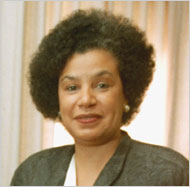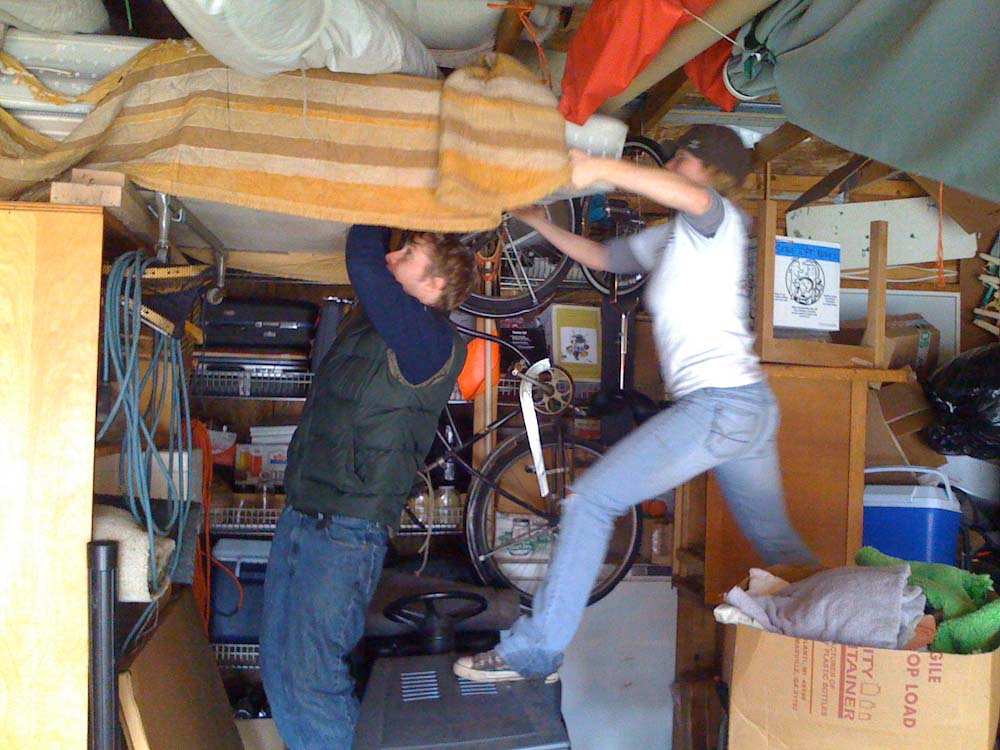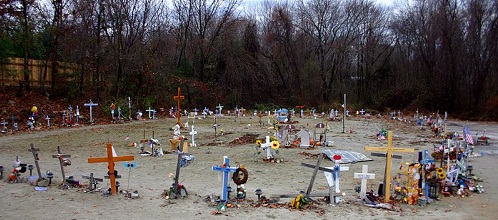We got this, right? Continue reading
journalism
This week’s reads include the history of the Ouija board, Sherlock Holmes pilgrims in Switzerland, and why women aren’t welcome on the internet. Continue reading
Topics include how a young British woman’s death in her apartment went unnoticed for almost 3 years, why French auteurs have yet to produce anything as successful as Harry Potter (Babar takes offence to that!), and lying liars and the lies they tell on the internet. Continue reading
Good long form journalism and essay writing isn’t dead. Below are a few examples as to why. Continue reading
Every December 3rd, around 6:13pm, I stop for a minute and remember the Worcester 6.
On December 3rd, 1999, two homeless people named Thomas Levesque and Julie Ann Barnes were living inside the Worcester Cold Storage Warehouse. The building was abandoned. It was a relic of another age, six stories tall, so close to the elevated Interstate 290 that, if you wanted to, you could reach from the side of the highway and almost touch the façade of the building. Continue reading
Rarely does anyone fight the good fight and win; the good fight is, by its very nature, a losing one. This week at the University of Georgia, though, a group of students stood up for their rights as journalists, and it appears that their refusal to roll over in the face of censorship may pay off. So how, exactly, did the staff of the Red & Black, UGA’s independent student paper, go from walking out of their offices and starting a Twitter account to being written up in the New York Times in barely more than 24 hours?
The Mayor of Toronto is a massive embarrassment to my city. Yesterday, one of the Toronto Star’s city hall politics reporters filed a story that Rob Ford wants to buy a slice of the park adjacent to his house so that he can build a bigger security fence. The reporter behind the story, Daniel Dale (and this is according to his own account, which differs from the mayor’s), went out to the park of which Ford wants to buy a piece and was taking pictures of the park and, it would seem likely, Ford’s fence, for the story. Continue reading
 Nancy Hicks Maynard (1946-2008) was the first black woman reporter for the New York Times, to cover hard news. Together with her husband Robert Maynard they were the first and only black publishers of a daily metropolitan newspaper, the Oakland Tribune. Along with seven other journalists, they also founded the Maynard Institute for Journalism Education, currently based in Oakland.
Nancy Hicks Maynard (1946-2008) was the first black woman reporter for the New York Times, to cover hard news. Together with her husband Robert Maynard they were the first and only black publishers of a daily metropolitan newspaper, the Oakland Tribune. Along with seven other journalists, they also founded the Maynard Institute for Journalism Education, currently based in Oakland.
Maynard, born and raised in Harlem, paid her dues at the New York Post before she was hired by the Times at the age of 21. While not the first black woman reporter at the Times (that honor goes to society reporter Bernadette Carey), she did up the ante by covering some of the most important news stories of the day. Continue reading
Parvaz was born in Iran to an Iranian father and American mother. Her family moved to British Columbia where she obtained a degree in English literature at the University of British Columbia. She had only quite recently accepted a job reporting for Al Jazeera, being based out of its headquarters in Doha, Qatar. She disappeared on April 29, 2011 and it was later revealed that she was detained by Syrian authorities on her way to report on anti-government demonstrations in that country. She was eventually deported to Iran where she was held for a further 19 days.
That Parvaz has multiple citizenships and passports seems to have been the pretext for her detainment. On Tuesday, an Iranian Foreign Ministry spokesman claimed Parvaz had committed several passport violations on her trip to Syria, stating that the journalist had “traveled to Syria with expired Iranian passport, planned to work without a press permit and had several passports on her.” While Parvaz likely used her Canadian or American passport to enter Syria, Iran doesn’t officially recognized multiple citizenships for Iranians.
Parvaz’s family have been jubilant today after receiving a phone-call from her last night around 9:30 pm PST to let them know she had been released and was planning on returning to Vancouver by Wednesday or Thursday. “It was one of the best moments of my life,” said her father. “I’m 68 years old and I’ve never had a moment like it.”
CBC, Al Jazeera, Seattle Times.
Journalism’s first obligation is to the truth. The second obligation is to protect the sources of sensitive information. True journalists will go to the mat for their sources. Judith Miller is one such journalist. Paul Branzberg was another.
Jake Adelstein is another in the long line of journalists doing their job no matter what the consequences are.
Mr. Adelstein was the first American to be hired by the Yomiuri Shimbun, Japan’s largest newspaper. He worked as a journalist on the police beat in Saitama and later in Tokyo covering organized crime for 12 years. He quit the newspaper and returned to the U.S. once threats were made against his safety by Tadamasa Goto, a powerful yakuza boss. Goto’s henchmen threatened Mr. Adelstein if he attempted to publish anything in regards to the suspicious conditions that allowed Goto to receive a liver transplant in the U.S. Later, after uncovering further details of a deal made with the FBI to allow Goto into the US, he ran the exposé in The Washington Post after Japanese publishers refused to print the piece. His book, Tokyo Vice, details the inner workings of the media and the symbiotic relationship of organized crime and the police force in Japan.
All this to say, the man knows of what he writes, which made him an obvious choice as consultant for a National Geographic documentary, Gangland Tokyo, about organized crime in Japan. As part of the consulting job, Mr. Adelstein states that helped arrange interviews, handled logistics, and did some of the interviews himself. He introduced the outsourced film team to his own sources and friends. He even went so far as to loan National Geographic footage of actual yakuza ceremonies, for their “dramatization” sequences.
However, National Geographic allegedly refused to allow Mr. Adelstein full access to the materials needed to verify the accuracy of the program. He has since resigned from his job as consultant and has returned his fees to National Geographic Television.
As he states on his website, Japan Subculture Research Center:
“For several months, I have repeatedly asked to have all the materials necessary to verify the “factual accuracy” of the program, as was the agreement. The reply from NGT was to insist that “factual accuracy” actually meant “general accuracy”, and that I was being difficult.”
National Geographic has had issues with objective, truthful reporting in the past. The company, of which News Corp. is a majority shareholder, has a history of manipulating images and creating sensationalistic stories through misinformation as reported in this lengthy exposé in The Huffington Post about National Geographic’s work about Africa and this damning report about the mistranslation of an important early Christian manuscript.
So perhaps it should come as no surprise that NatGeo’s use of outsourced film crews working as “parachute journalists“on the yakuza documentary would result in possible compromises of source safety for the sake of creating a fascinating narrative.
After viewing a rough cut of the program, Mr. Adelstein writes:
“I now have serious concerns about the safety of all Americans and Japanese sources, friends, and the staff of National Geographic Channel Japan who are involved with this program. There is a chance that the yakuza that have been betrayed by NGT will use violence against those residing in Japan to express their anger. I am even concerned about the safety of the yakuza that agreed to appear in the documentary, probably under false pretenses and false promises. They will face retaliation from their superiors if the program is aired as it is now. Yakuza are people too, a small minority of them are good people in their own right, and once they cooperate with the program, they are also sources. And sources have to be protected. That is the good faith that is demanded in responsible journalism.
(…)
There is a saying in Japanese, bushi wa nigon ga nai. Literally, a samurai doesn’t have a second word. What it means is that once a samurai has said he’ll do something or promises he’ll do something, he does and he keeps that promises. He doesn’t backpedal and say “factual accuracy” means “general accuracy” or that “we may have said that but that’s not what you signed.” Would I believe the word of three yakuza over the word of an LA based “film director” who brags about his reputation for doing awesome “dramatizations” and “re-creations”? Mmm…Yes. I’d believe the yakuza every time, in this case. The yakuza do have standards and practices. They are not particularly high standards but they exist. Most yakuza have them posted on large ornate scrolls posted on their office walls and written in bold dark cursive: “Any member who engages in theft, robbery, rape and or any other activity that runs contrary to the noble way (ninkyodo) will be expelled.” It’s very clear.
(…)
If they air the film as it is now and anyone is hurt, I’ll be the first one to go to the police and file charges of criminal negligence resulting in injury and/or death. And I will do my best to see that they are extradited. Because recklessly endangering or causing harm to others is a crime here in Japan where the documentary was filmed.
They can’t deny they knew there were dangers. The chain of emails that someone in the organization anonymously sent me establishes that, as well as does this posting. NGT has been warned; I hope they become enlightened and do the right thing for once. Ethical and factual journalism can actually be pleasant, if a little boring.”
Read the rest of Mr. Adelstein’s post here.
The yakuza are compelling figures. Just like the mafia in the West as depicted in The Sopranos or the Godfather franchise, the temptation is there to turn them into the ultimate anti-heroes. There’s a reason they even have fan magazines and video games set in the underworld of Japan. However, that doesn’t excuse NatGeo’s attempts to twist their documentary into a sensational pseudo-exposé at the expense of their sources’ welfare.
H/T: DogsofWar, Botswana Meat Commission FC, Lucky and Rumpofsteelskin. Image via TokyoMango.


